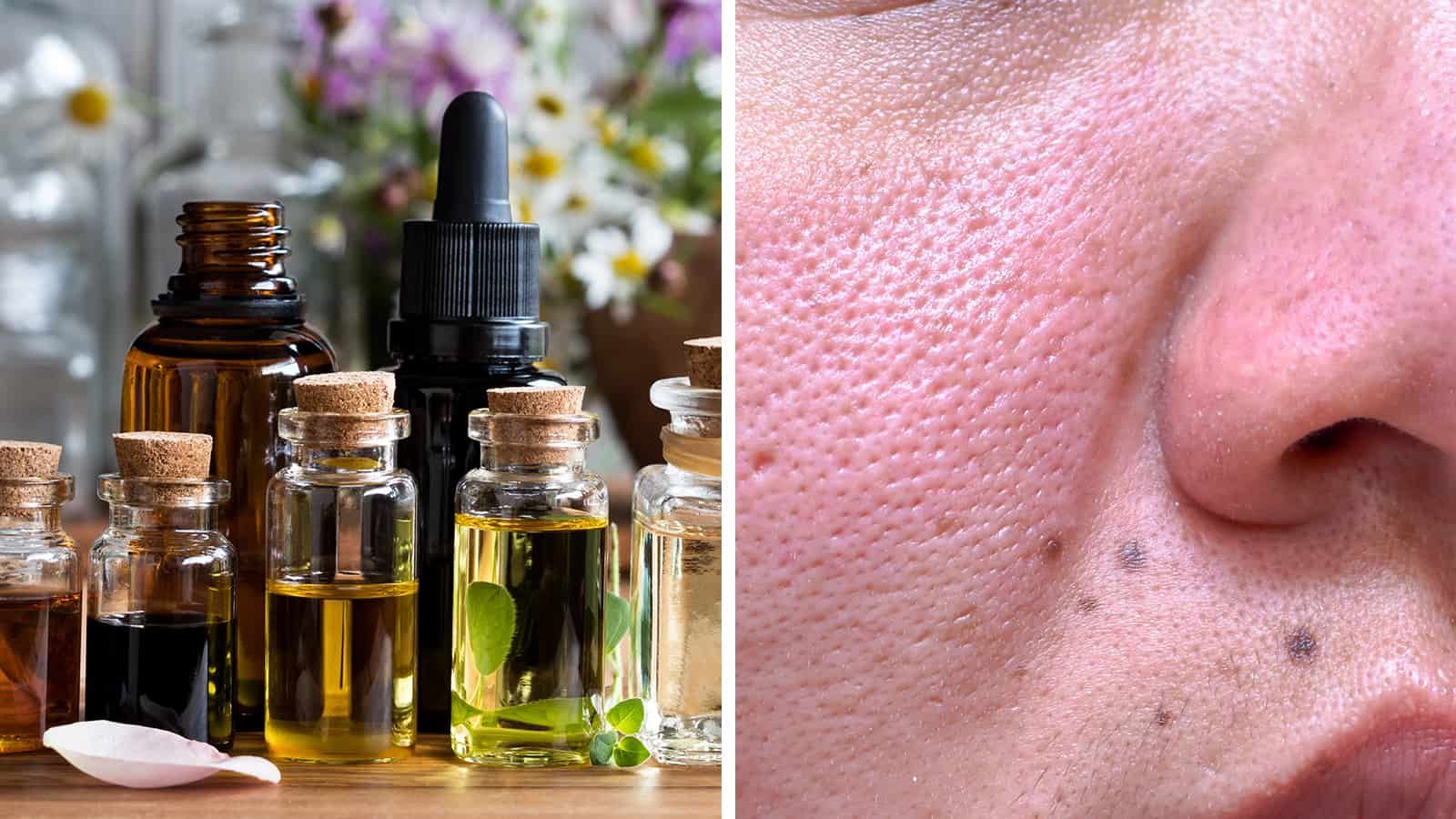How would you describe your complexion? Not a whole lot of people would say that their skin is normal. Most faces are either dry, oily, sensitive, or a combination of the three. If you say that you have too much oil on your skin, you aren’t alone.
According to an article published by The Journal of Clinical and Aesthetic Dermatology, it’s one of the most common skin conditions. Oily skin, or seborrhea, is usually associated with enlarged facial pores and “greasy” looking shine.
Seborrhea affects both men and women, and it’s common during adolescence when hormonal changes can lead to the overproduction of skin oils. One of the frustrating side effects of having greasy skin is acne. While pimples are prevalent during the teen years, acne can also affect you as an adult.
Oil and Your Skin
Your skin has the colossal task of protecting your body, keeping it waterproof, and providing a natural cooling system. It also does an efficient job of producing oils to keep itself smooth and hydrated. In the middle layer of your skin, called the epidermis, you have thousands of glands that make oil.
The oil glands manufacture the oil that comes to your skin’s surface to keep it hydrated and block dirt and bacteria. If you have seborrhea, your oil glands can produce too much oil, causing that classic “shiny” face. It can also trap microscopic dirt in your pores, leading to blackheads, whiteheads, and pimples.
Having seborrhea can be a challenge, especially when it’s combined with acne. Many people have combination skin, which means that they have an oily T Zone (forehead, nose, chin), and the rest of their skin is dry. Combination skin also needs specific treatment for seborrhea.
According to an article published by the National Eczema Association, you can also develop seborrheic dermatitis. It’s a condition that causes inflamed, itchy patches of skin on your scalp, face, and other areas. These patches are often greasy and flaky, explains the article.
How to Care for Oily Skin
Have you been bothered with seborrhea since your teen years? You’ll probably need a lifelong skincare routine if your skin is naturally oily. Since everyone is different, one method doesn’t fit all skin types.
The American Academy of Dermatology Association states that your seborrhea may be caused by genetics, hormone fluctuations, humidity, and even stress. The article shares some good news: greasy skin is usually thicker with fewer wrinkles. However, it needs tender loving care to prevent acne and breakouts.
For optimal seborrhea care, the AADA suggests these things:
- Choose skincare products that are oil-free and won’t clog your pores (noncomedogenic).
- Gently wash (not scrub) your face every morning and evening with a mild foaming face wash. It would help if you also washed your face after exercising.
- Avoid cleansers with alcohol because they can irritate your face.
- Always use moisturizer and sunscreen with an SPF 30 or higher.
- Avoid touching your face during the day and wash your hands before a beauty routine.
- Consider using blotting papers to gently blot (not rub) away from excess facial oils.
- Remove your makeup before going to bed.
Using Essential Oils to Treat Your Oily Skin
Have you ever considered the benefits of pure essential oils for your seborrhea condition? It seems to be counterproductive, but they may help you. Although, before you start, there are a few precautions to take, such as using carrier oils.
Essential oils are the pure essence of an herb, spice, or fruit. Since they aren’t diluted, they are quite potent and can cause skin irritation if you apply them as they are. That’s why you need a carrier oil, which is a pure neutral oil used to dilute the potency of these essential oils.
Some of the most familiar carrier oils are sweet almond, olive, argan, coconut, and jojoba. These natural oils are light and almost scent-free. They are ideal for diluting essential oils because they don’t interfere with the oil’s health benefits.
If you are using essential oils for oily skin, you may consider jojoba as a carrier. According to a study published by the Journal of Clinical Aesthetic Dermatology, jojoba is an efficient moisturizer that’s often mixed with greasy skin and acne medication. Jojoba also won’t clog your pores, which means you can achieve the skin look you want by adding just one product.
Essential Oils that May Help Treat Seborrhea
Are you searching for a natural treatment for your oily skin? Essential oils with jojoba may be your answer. Here is a list of ten essential oils for you to consider.
1. Rosemary
The woodsy herb that is the darling of Mediterranean cuisines can do more than flavor your food. Rosemary essential oil has anti-bacterial and anti-fungal properties, says an article published by the Journal of Agricultural Food and Chemicals. It may help fight the bacteria that can get plugged in oily pores to produce acne breakouts.
2. Tea Tree
People have used tea tree oil for years to treat skin conditions, especially excess fat and acne. They have also used tea tree oil as a natural treatment for scars, which would be useful if you have damage leftover from bad acne. It’s an ideal essential oil for greasy skin because it has anti-bacterial and anti-microbial properties.
3. Fennel Seed
Fennel seed is a renowned culinary herb that lends a delicate licorice flavor in foods and beverages. You’ll often taste that subtle sweet flavor note in many pasta sauces and ground sausage. A study published by Biomed Research International states that fennel seed and its oil have anti-inflammatory, antimicrobial, and anti-fungal properties.
4. Thyme
Here’s another venerable herb long prized for its culinary and medicinal uses. Thyme oil has a lovely smell and is soothing to irritated skin. Thyme oil has antimicrobial properties that may prevent acne breakouts.
 5. Lemon
5. Lemon
Just the smell of this beloved citrus fruit can take you to your happy place. Pure lemon oil (not juice) is extracted from the cheery yellow rinds of lemons. The oil is mildly acidic yet gentle enough to help excess dry oil without irritating your skin.
6. Rose
Since recorded history, rose oil has been used for perfumes, cooking, and personal care. Few know that it can help with the skin due to its disinfectant and antibiotic properties. It can easily wipe the oil away and diminish any dark spots that come with aging. Its pleasant aroma makes it a top choice over other essential oils.
7. Eucalyptus
If you love a strong smell and a tingling feeling on your skin, then you should try eucalyptus oil for your oil control issues. The beauty industry already knows about this product’s wonders, so they use it to produce facial cleansers, shower gels, beauty emollients, and bath spritzers. If you have eczema or other skin conditions that cause rashes and burning, you should avoid this as it can irritate.
8. Basil
Oily skin or clogged pores are no match for the power of basil oil. It removes dirt and impurities from your skin, leaving a cool and refreshing feeling behind it. Did you know that this oil is an excellent source of vitamin K?
Not only can it open your pores and clean out that debris, but it can also reduce the appearance of wrinkles and fine lines. It’s one to try if you’re plagued with oily skin.
9. Cedarwood
Cedarwood is often a favored treatment by dermatologists because it has antiseptic properties. It’s not irritating like other oils, so it can be used on those who have eczema and other skin conditions.
It’s so powerful that it can be used for hair loss and even help reduce stress too. This one needs a carrier oil as it’s a bit strong, but the plethora of uses for this essential wonder is remarkable.
10. Lavender
Very few people don’t like the pleasant aroma of the lavender bush. It’s used to help calm nerves, ease someone to a peaceful sleep, and keep your skin glowing. It can eliminate the blotchiness and redness that comes with uneven skin tones and take care of excess oil in the skin.
Some experts recommend using it in a steam bath rather than putting it directly on the face. While it’s getting rid of grease and cleaning your pores, it can also help control your wrinkles.
 Final Thoughts on Coping with Oily Skin
Final Thoughts on Coping with Oily Skin
When it comes to oily skin, it’s a problem that no one wants to face. It can make your skin look greasy and unclean. You don’t need to turn to harsh prescription medications or over-the-counter creams for your oil control. You can use the power of nature to combat your oily complexion and have a radiant glow that isn’t greasy to the touch.



















